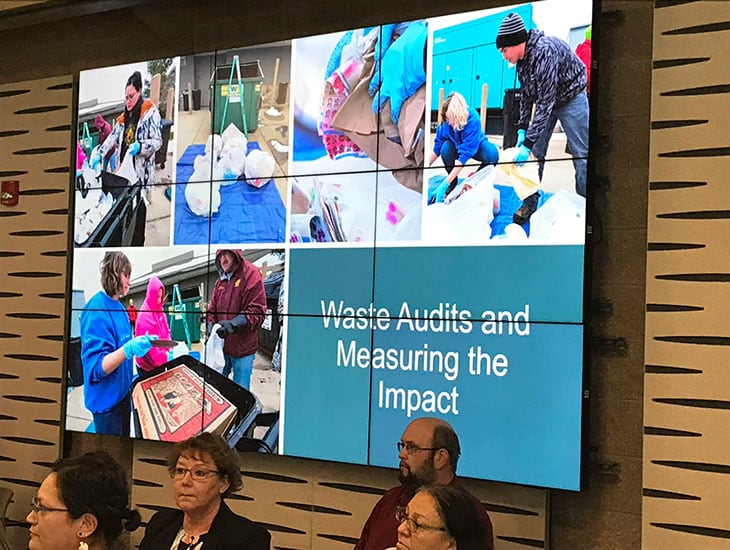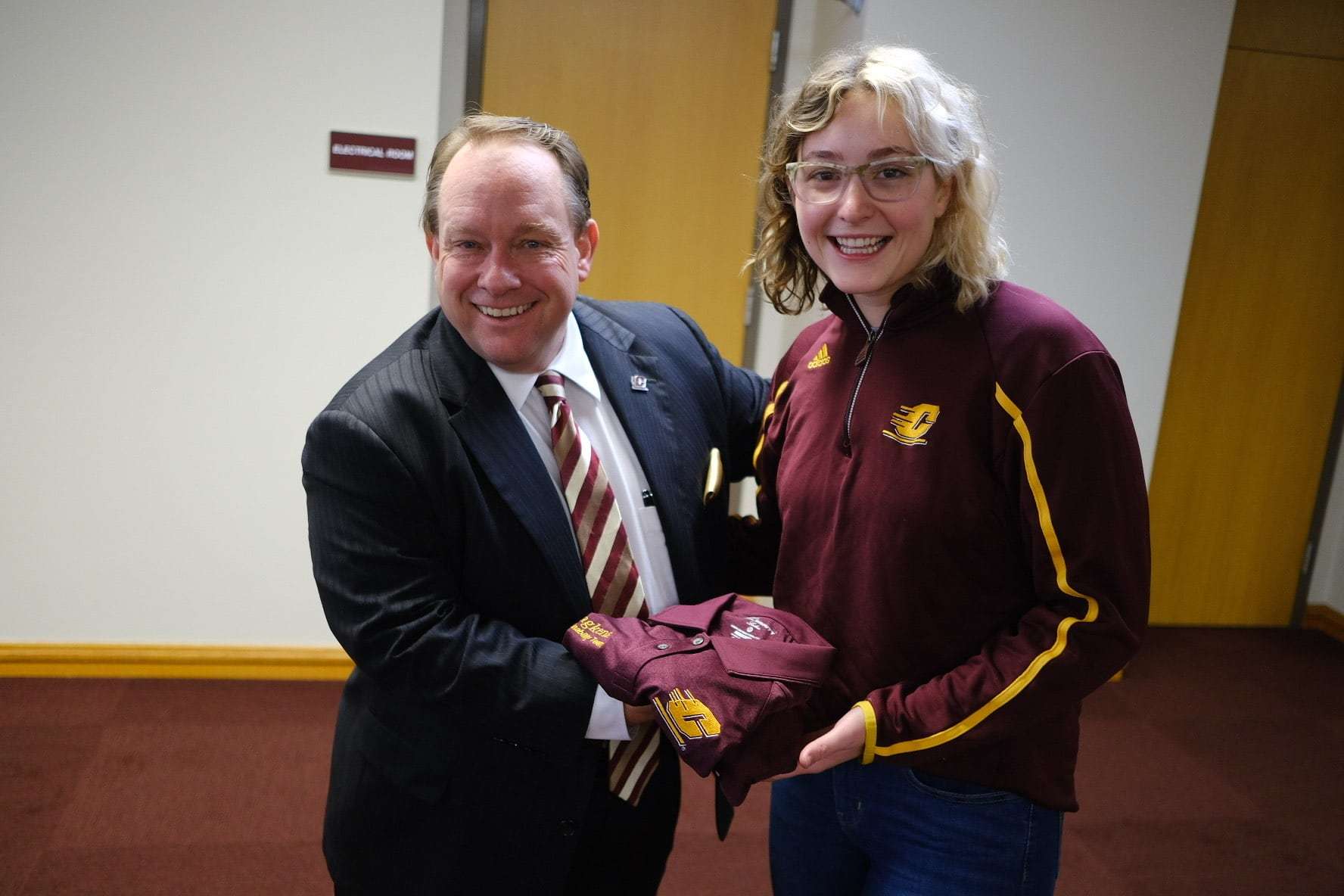
Start up
Passion. Potential. Pitches. Don't miss any of the 2025 New Venture Challenge excitement.
Tune in Friday, April 11 at 1 p.m. for great ideas and fierce competition. Then, join the judges, mentors, spectators and teams as they see who is going home with thousands of dollars in venture financing. The awards broadcast begins at 6:30 p.m. and one team will walk away as the overall best venture.
Central Michigan University’s College of Business Administration is the home of the Isabella Bank Institute for Entrepreneurship and the first Department of Entrepreneurship in the state of Michigan. We are a student-centric hub where experiential, curricular, and external entrepreneurial opportunities intersect.
Our mission is to maximize student success by fostering a campus-wide entrepreneurial mindset that promotes inter-disciplinary collaboration and the creation of new ventures.
We aim to create innovative programming, boost cross-campus and ecosystem collaboration and provide a comprehensive mentoring program.
Our institute provides extracurricular opportunities and is open to all undergraduate and graduate CMU students.
Are you interested in becoming an entrepreneur?
Every journey is unique. Explore the opportunities that interest you.
When Central Michigan University freshman Eric Urbaniak, from Bay City, Michigan, learned of an opportunity to work with the Saginaw Chippewa Tribal College on implementing sustainable food practices, he didn't waste any time in saying "yes."
He became part of a fall semester-long volunteer project involving students, faculty and staff from CMU and the tribal college that in three months was able to divert about 5,000 pounds of food waste from landfills to compost.
"The experience was very eye-opening for me," said Urbaniak, who is majoring in biology and public and nonprofit administration. "It not only was a great opportunity to learn what the tribal communities are like, but I learned what potential there is to make a big difference toward fighting food waste and helping to reduce global warming by reducing methane gas."

The idea blossomed during a regular quarterly meeting attended by Jay Kahn, CMU's facility operations director; Sally Kniffen, the tribe's environmental liaison; and Jake Borton Jr., director of the Isabella County Material Recovery Facility.
"We at CMU save more than $16,000 a year by composting," Kahn said. "It's good for our pocketbook and for our environment." He noted that rotting food waste contributes to the release of dangerous methane gas.
CMU has operated zero-waste kitchens since 2013, he said.
"We are really good at this, and we wanted to team up with the Saginaw Chippewa Indian Tribe, do a student exchange, do a project that is good for the environment and learn how to do metrics. It was a real good learning opportunity for both groups."
Faculty from CMU and the tribal college rounded up two students each to do the food recovery effort at the tribe's Andahwod Continuing Care Community & Elder Services.
In addition to Urbaniak, the student group included Magkena Szemak, of Ann Arbor, Michigan, a senior environmental science major, and Tribal College students Jeannie Snyder and Elisa Grossman.

In January, the team sorted through the senior center's dumpster and found 82% of the material could have been diverted to recycling or composting.
By February, after training the center's kitchen staff, it was down to 63%.
Over three months, the team collected more than six tons of waste, from which they separated food for composting. The 34 residents and kitchen staff of the senior care facility had composted nearly 5,000 pounds.
The students also created and distributed informational posters about the methods and benefits of composting, which they distributed around the tribal community. One of the posters used the tribe's medicine wheel design to highlight reduce, reuse, recycle, compost. They also presented their findings before the Tribal Council.
"This is probably one of the best projects that the students from the Tribal College have been involved with so far," said Kathy Hart, Saginaw Chippewa tribal equity program director.
"The project opened my eyes to what we can do at the college and even at my own home. We want to continue the effort and get others on board. Hopefully even the casino."
"I've learned so much and can't wait to resume efforts in the fall," Szemak said. "We're planning to present the project at conferences, which I hope will encourage more waste diversion programs."


Explore special opportunities to learn new skills and travel the world.

Present your venture and win BIG at the New Venture Challenge.

Boost your entrepreneurial skills through our workshops, mentor meetups and pitch competitions.

Learn about the entrepreneurship makerspace on campus in Grawn Hall.

Present a 2-minute pitch at the Make-A-Pitch Competition and you could win prizes and bragging rights!

Connect with mentors and faculty who are here to support the next generation of CMU entrepreneurs.

Are you a CMU alum looking to support CMU student entrepreneurs? Learn how you can support or donate to the Entrepreneurship Institute.